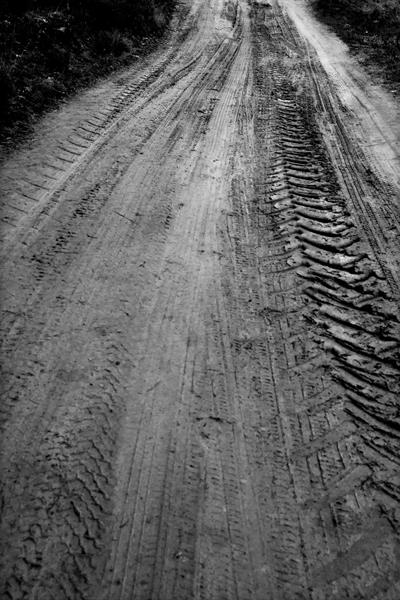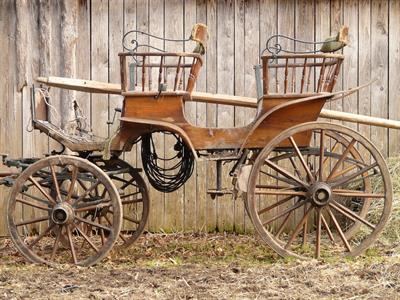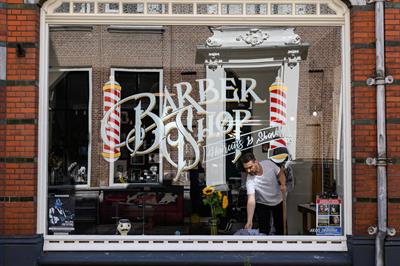PDF chapter test TRY NOW
The lesson "A Hack Driver" is written by Sinclair Lewis. The narrator of the lesson is a young lawyer. The lesson opens with the narrator giving his introduction to the readers. After graduation, the narrator got selected for the job of junior assistant clerk in a famous law firm. But instead of preparing legal papers like a lawyer, he had to deliver the court order to the victims like a cheap private detective. Here, the narrator strikes his profession like a cheap private detective. It implies that instead of performing his actual work, he was usually sent as a member to call out the victims of individual cases or crimes.
Moreover, the narrator says he had to go to the city's dirty and shadowy corners to find his victims. It means he should be ready to find the victims wherever they are. He added that he frequently encountered difficult situations when he was physically assaulted by some of the more powerful and self-assured individuals. The phrase "bigger and the self-confident ones" in this context suggests that the victims, who seemed muscled and stubborn enough, refused to go with him to court.

Dirty and Shadowy corners
After narrating his situation, the narrator said he hated the troublesome job. The city life revealed to him how worst it was. He might have said it because he hates to find out the victims by going through the gloomy and dirty corners. The narrator hated his job and city life since he thought of running away to his hometown. In addition, he said that if he had been in his hometown, he could have worked as a real lawyer (one who practices law without undergoing any training), and he would have escaped from the unpleasant training period. It might be because there is no need for training in his hometown, and after graduation, people can directly practice law.
The narrator then narrates the incident, which makes him feel happy one day. While the narrator was dissatisfied with the city life, his officials sent him to a town forty miles away from where he lived. The town which he sent out was New Mullion. He was sent out to serve a summons (an official demand to appear in a court of law) on a man named Oliver Lutkins. The man was a witness or observer in a law case. He had to visit the law firm once the authorities called him. But what the man did was he constantly neglected the letters sent to him.
The joy of visiting the village washed away as the narrator arrived at New Mullion. It happened because the village was not as per his expectations. He thought the village to be charming and simple. However, he was depressed by how the streets seemed. The streets were flooded with mud (which the narrator describes as rivers of mud) and in poor condition. The wooden stores in the street row were either entirely unpainted or painted a sour brown.

Muddy street
After saying that, the narrator said that the only agreeable sight he had in the place was a delivery man at the station. The narrator then describes the appearance of the delivery man. The man appeared to be in his forties. He was red-faced and cheerful. The narrator then says he was thick about the middle (fat around the waist). It means that he was a fat man. Then he said the uniform he wore seemed dirty, and the uniform showed extensive use or wear. The narrator then says he had a friendly appearance, making him think he would be kind to other people. In addition, he told his readers that while looking at him, you will feel he is friendly with other people.
The narrator then told the delivery man that he wanted to find a man named Oliver Lutkins. The delivery man immediately repeated the name of the person being searched by the narrator. He then said that he had just seen Lutkins one hour before. He also told the narrator it was difficult to find Lutkins as he was always up to something. After telling that, the delivery man said that Lutkins could be found at Fritz's shop, where he used to play a card game known as poker. He also inquired about the urgency of finding Lutkins. After hearing that, the narrator replied that it was urgent to find Lutkins as he had to return to the city by the afternoon train.

Poker (card game)
The delivery man says that he has got a horse-drawn vehicle. He then says that he will bring it out and let them drive around together to find Lutkins. He then says that he knew most of the places where Lutkins would roam.

A horse-drawn vehicle
The narrator then said that he was impressed by the friendly and caring behaviour of the delivery man. He also claimed that though he knew that he was trying to earn some money from him, he accepted his offer because he was a very nice man. He was relieved that the fare money would go to this deserving individual. The narrator negotiates down to two dollars an hour. After that, the delivery man brought a hack from his nearby house, which seemed like a huge black box placed with wheels. Here, the narrator describes the cart as if it looks like a large black box kept on the wheel. With a broad smile, the narrator told him that the carriage was nearby. The delivery man's broad smile made him feel like his well-known old friend.
The narrator then says that the villagers in New Mullion are always willing to assist a stranger. He made the statement because the delivery man had already proved his helping mentality by taking a risk to find Oliver Lutkins.
The delivery man then started a conversation with the narrator gently. He says that he did not want to disturb his matters. After telling that, he said he sensed that the narrator wanted to collect some money from Lutkins. After that, the delivery man told him that Lutkins had never paid his debts. He, too, had to take fifty cents back from him, which he won in the poker game.
The delivery man then says that Lutkins was not a bad man. But when it comes to money, he refuses to pay it. Later, he suggested that the narrator should not come in front of Lutkins because his fancy clothes could make Lutkins doubt him and give him a chance to run away. Here, one can understand how the delivery man and the narrator describe each other's clothing. Each other clothing differentiates their profession as well as how they are dressed. The delivery man had made the statement because if Lutkins sees the narrator in such a dress, he will sense that something is fishy and run away from there. To avoid that, the delivery man told him to stay out. He told him that if he wanted, he would go into Fritz's shop and enquire him. In addition, he asks the narrator to stay behind him and see what's happening there.
The narrator then says he liked the delivery man (hack driver) because of his humanity and kindness in treating a stranger. Here, one can find that the narrator calls the man using different names. At first, he calls him a delivery man, and secondly, he addresses him as a 'hack driver'. The narrator then says that he might not find Lukins on his own, and he was sure that with the help of the kind hack driver, he could catch Lutkins. As the hack driver worked hard for him, he told him the truth behind his search. He told him that Lutkins was a witness in an important case, but he was not helping them out by giving the details. That information from Lutkins could help them in solving the case quickly. The driver heard all this sincerely and then hit on the narrator's shoulder. The term "hit me on the shoulder" means putting hands over the shoulder in a friendly way and says that they would surprise Brother Lutkins by catching him and fulfilling the narrator's purpose.
The narrator then says, "Let's start, driver." On hearing that, the hack driver says that most people in the town call him Bill or Magnuson. In addition, he says that his business is called 'William Magnuson Fancy Carting and Hacking'. After hearing that, the narrator says, "All right", and asks him to proceed with the mission. The hack driver then says that Lutkins should look anywhere. In addition, he says that Lutkins was fond of playing poker, and he had a talent for tricking people. On hearing that, the narrator felt that the hack driver appeared impressed by Lutkins' capacity to deceive others. The narrator also believed that if the hack driver had been a police officer, he would have arrested Lutkins with respect and imprisoned him out of sorrow.
The narrator then says, "Let's start, driver." On hearing that, the hack driver says that most people in the town call him Bill or Magnuson. In addition, he says that his business is called 'William Magnuson Fancy Carting and Hacking'. After hearing that, the narrator says, "All right", and asks him to proceed with the mission. The hack driver then says that Lutkins should look anywhere. In addition, he says that Lutkins was fond of playing poker, and he had a talent for tricking people. On hearing that, the narrator felt that the hack driver appeared impressed by Lutkins' capacity to deceive others. The narrator also believed that if the hack driver had been a police officer, he would have arrested Lutkins with respect and imprisoned him out of sorrow.
The hack driver took the narrator to Fritz's shop and asked about Oliver Lutkins. He asked him whether he found Lutkins around today. After telling that, he says that Lutkins's friend is looking for him. The hack driver tried to seem natural by saying that. He made this to drive Fritz, to tell the truth about Oliver Lutkins. After hearing that, Fritz looked at the narrator hiding behind Bill.
At first, Fritz hesitated to tell where Lutkins was. It might be because, as the narrator seemed to be a new person, he might have doubted him. Then Fritz said that Lutkins was there a few hours ago, but he left for Gustaff's shop, where he had proceeded for a shave. After getting the information, Bill asked Fritz to convey a message to Lutkins that he was looking for him.
Next, the narrator and the hack driver go to Gustaff's shop. Bill went inside the shop first, and the narrator stood at the door. Bill asked not only a Swede, here the Swede is Gustaff (a native or inhabitant of Sweden or a person of Swedish descent), but also two customers whether they had seen Lutkins. While hearing that, Gustaff became angry and said he hadn't seen him. In addition, he said that he didn't care about him.
Moreover, Gustaff says that if the narrator and the hack driver find him, they should collect thirty-five dollars from him. Since Lutkins had bought the money from him, they should ask him to repay it if they see him. While the conversation was going on, one of the customers told them he had seen Lutkins walking down the main street side of the hotel.
When the narrator and the hack driver are about to climb the hack again, Bill guesses that Lutkins may have gone to Gray's barber shop as his credit limit with Gustaff had ended. But when they got to Gray's shop, they found that Lutkins had departed only five minutes earlier. They decided to visit the poolroom (a hall or establishment where the pool and billiards are played); someone told them he had left after buying a pack of cigarettes. So their attempts to catch him were all in vain. So for an hour, until it was after one o'clock, they followed him but failed to capture him, and the narrator felt very hungry. However, the narrator loved Bill's unvarnished rural views of his neighbours so much that he didn't really care if he had found Lutkins or not.
At first, Fritz hesitated to tell where Lutkins was. It might be because, as the narrator seemed to be a new person, he might have doubted him. Then Fritz said that Lutkins was there a few hours ago, but he left for Gustaff's shop, where he had proceeded for a shave. After getting the information, Bill asked Fritz to convey a message to Lutkins that he was looking for him.
Next, the narrator and the hack driver go to Gustaff's shop. Bill went inside the shop first, and the narrator stood at the door. Bill asked not only a Swede, here the Swede is Gustaff (a native or inhabitant of Sweden or a person of Swedish descent), but also two customers whether they had seen Lutkins. While hearing that, Gustaff became angry and said he hadn't seen him. In addition, he said that he didn't care about him.
Moreover, Gustaff says that if the narrator and the hack driver find him, they should collect thirty-five dollars from him. Since Lutkins had bought the money from him, they should ask him to repay it if they see him. While the conversation was going on, one of the customers told them he had seen Lutkins walking down the main street side of the hotel.
When the narrator and the hack driver are about to climb the hack again, Bill guesses that Lutkins may have gone to Gray's barber shop as his credit limit with Gustaff had ended. But when they got to Gray's shop, they found that Lutkins had departed only five minutes earlier. They decided to visit the poolroom (a hall or establishment where the pool and billiards are played); someone told them he had left after buying a pack of cigarettes. So their attempts to catch him were all in vain. So for an hour, until it was after one o'clock, they followed him but failed to capture him, and the narrator felt very hungry. However, the narrator loved Bill's unvarnished rural views of his neighbours so much that he didn't really care if he had found Lutkins or not.

Barbershop
The narrator then asked the hack driver about eating lunch. He then says let's go to the restaurant, and he will buy some food. After hearing that, the hack driver says that he will go to his home. He also says that there are only four restaurants, and none are decent. He agreed to obtain some food from his wife. The hack driver also advised the narrator to purchase a food parcel from his wife since it would cost less than the greasy, tasteless dinner at the restaurant. Also, he says that she won't charge you more than half a dollar. Additionally, he said they could go to Wade's hill and enjoy the pleasant view while eating.
The narrator then says that he knew the hack driver was not helping him because of his helping nature but because he was gaining money from him. After that, he claims he was paying the hack driver for his time with him.
In the end, the narrator paid him for six hours, including the lunch hour, at a high price. After telling that, he says the hack driver was not a dishonest person like him. Then he narrates the reason behind his statement. The narrator billed the company for everything he spent on the hack driver. However, he said that having the hack driver's presence would have been worth paying for. Since his firm would cover all of his expenditures, he felt safe with all this. Being in the company of someone as cheerful as the hack driver made him feel delighted. The narrator then says that the hack driver's upbeat country knowledge was quite pleasant for a village boy who was tired of city life. It means that he compares his city life with the village life of the hack driver. The narrator used to search for his victims in every nook and corner of the dirty city corner. Meanwhile, the hack driver explores every corner of the village pleasantly. Here, one can note the differentiation between city life and village life.
While the narrator and the hack driver were sitting on the hilltop, they saw the beautiful grasslands and a stream which slipped among the trees. The hack driver talked to him about the New Mullion and the people living in the village. For the narrator they were very beautiful as he was also a villager and did not like the city life much. While the hack driver was narrating things, he painted it in the form of a picture and imagined the things happening in the village. Bill talked about New Mullion. He explained about everyone so that he felt like everything had happened in front of his eyes. The hack driver was aware of everything, yet despite his tendency to mock others, he recognised and accepted their ignorance. 

New Mullion Railway Station (just for reference)
The hack driver then says that he had told his neighbours about the narrator, and they were curious to see him. Then he says they were the only people left in the village who had not seen him yesterday when he searched for Lutkins.
In the end, the narrator paid him for six hours, including the lunch hour, at a high price. After telling that, he says the hack driver was not a dishonest person like him. Then he narrates the reason behind his statement. The narrator billed the company for everything he spent on the hack driver. However, he said that having the hack driver's presence would have been worth paying for. Since his firm would cover all of his expenditures, he felt safe with all this. Being in the company of someone as cheerful as the hack driver made him feel delighted. The narrator then says that the hack driver's upbeat country knowledge was quite pleasant for a village boy who was tired of city life. It means that he compares his city life with the village life of the hack driver. The narrator used to search for his victims in every nook and corner of the dirty city corner. Meanwhile, the hack driver explores every corner of the village pleasantly. Here, one can note the differentiation between city life and village life.
While the narrator and the hack driver were sitting on the hilltop, they saw the beautiful grasslands and a stream which slipped among the trees. The hack driver talked to him about the New Mullion and the people living in the village. For the narrator they were very beautiful as he was also a villager and did not like the city life much. While the hack driver was narrating things, he painted it in the form of a picture and imagined the things happening in the village. Bill talked about New Mullion. He explained about everyone so that he felt like everything had happened in front of his eyes. The hack driver was aware of everything, yet despite his tendency to mock others, he recognised and accepted their ignorance.

Hilltop
Then the narrator told him about the minister's wife, who would sing loudly in the church whenever she was in debt. In other words, she prayed to God about her issues. After that, he says that some college boys dress in such a fancy way, and the lawyer's wife always fails to make her husband wear both the collar and the tie on the same day. The narrator states that Bill had such a deep understanding of the residents of his village that it caused him to adore New Mullion. He claims that although he now understood practically everything about his home, he was ignorant of the city where he resided.
While Bill was unfamiliar with towns and institutions, he was well-travelled around the country and had had several occupations. He returned with a philosophy of simplicity and laughter from his travels. His words and knowledge of everything gave him a sign of courage.
Then the narrator told him about the minister's wife, who would sing loudly in the church whenever she was in debt. In other words, she prayed to God about her issues. After that, he says that some college boys dress in such a fancy way, and the lawyer's wife always fails to make her husband wear both the collar and the tie on the same day. The narrator states that Bill had such a deep understanding of the residents of his village that it caused him to adore New Mullion. He claims that although he now understood practically everything about his home, he was ignorant of the city where he resided.
While Bill was unfamiliar with towns and institutions, he was well-travelled around the country and had had several occupations. He returned with a philosophy of simplicity and laughter from his travels. His words and knowledge of everything gave him a sign of courage.
The narrator and the hack driver then left the beautiful fields and restarted their mission of finding Oliver Lutkins. They failed to find him. Finally, Bill cornered Lutkins's friend and forced him to admit that he had run away to his mother's house, which was three miles from New Mullion. So, they travelled there and made arrangements to find him.
The hack driver then told the narrator that he knew Lutkins's mother. After telling that, he took a deep breath and said his mother was a very stubborn lady. He then narrates an incident which made him feel very frightened about her. One day the hack driver brought a trunk for Lutkins's mother. He didn't take care of the box as if there were eggs. She angrily scolded him for not taking care of it. After narrating the incident, he described her physical appearance. Lutkins's mother was nine feet tall and four feet thick and compared her speed to a cat's. He then says that she definitely can talk.
After that, the hack driver added that Lutkins must have come to know they were searching for him, which is why he had run to his mother's place to hide. He also suggested that the narrator let him deal with the mother as he doubted that the narrator would be able to get to know the truth from the lady's mouth. It means he was living in the village and had already spoken with Lutkins's mother, and it would be good if he spoke to her.
When the narrator and the hack driver arrived at the farm, they saw a large, cheerful older woman. The bold hack driver approached her, confidently introduced himself as Bill Magnuson, and informed her that he was looking for her son Oliver. The woman shouted back that she didn't know anything about him.
The hack driver became stern with the woman and said, "Look here now". They have seen enough of this foolishness and have the legal authority to inspect every property for Oliver Lutkins. Additionally, he claimed they had the legal authority to search her home to discover Oliver Lutkins.
The narrator was happy as he was getting due importance from Bill; even the lady seemed impressed by him. She went into the kitchen, and both of them followed her. To their shock, she took out a hot iron from the old-fashioned stove and came in front of them by shouting. She also threatened by telling them they could search for what they wanted if they did not mind getting burnt. She laughed when they stepped back due to fear. After seeing Lutkins's mother's threatening behaviour, the hack driver told the narrator to let them get out of the house. He also said that if they stayed further, she would murder them. When they came out of the home, the hack driver asked the narrator whether he noticed that lady's smile. She was laughing at them because of her victory.
The narrator acknowledges the hack driver's viewpoint after hearing it. He concurred that the woman was acting unpleasantly. However, they were able to search the whole home, including the stable (where the horses are kept) and the outhouse. As it was a single-storeyed building, they managed to search the whole of it and could not find Lutkins. As the narrator was getting late for the train, the hack driver took him to the station.
The hack driver then told the narrator that he knew Lutkins's mother. After telling that, he took a deep breath and said his mother was a very stubborn lady. He then narrates an incident which made him feel very frightened about her. One day the hack driver brought a trunk for Lutkins's mother. He didn't take care of the box as if there were eggs. She angrily scolded him for not taking care of it. After narrating the incident, he described her physical appearance. Lutkins's mother was nine feet tall and four feet thick and compared her speed to a cat's. He then says that she definitely can talk.
After that, the hack driver added that Lutkins must have come to know they were searching for him, which is why he had run to his mother's place to hide. He also suggested that the narrator let him deal with the mother as he doubted that the narrator would be able to get to know the truth from the lady's mouth. It means he was living in the village and had already spoken with Lutkins's mother, and it would be good if he spoke to her.
When the narrator and the hack driver arrived at the farm, they saw a large, cheerful older woman. The bold hack driver approached her, confidently introduced himself as Bill Magnuson, and informed her that he was looking for her son Oliver. The woman shouted back that she didn't know anything about him.
The hack driver became stern with the woman and said, "Look here now". They have seen enough of this foolishness and have the legal authority to inspect every property for Oliver Lutkins. Additionally, he claimed they had the legal authority to search her home to discover Oliver Lutkins.
The narrator was happy as he was getting due importance from Bill; even the lady seemed impressed by him. She went into the kitchen, and both of them followed her. To their shock, she took out a hot iron from the old-fashioned stove and came in front of them by shouting. She also threatened by telling them they could search for what they wanted if they did not mind getting burnt. She laughed when they stepped back due to fear. After seeing Lutkins's mother's threatening behaviour, the hack driver told the narrator to let them get out of the house. He also said that if they stayed further, she would murder them. When they came out of the home, the hack driver asked the narrator whether he noticed that lady's smile. She was laughing at them because of her victory.
The narrator acknowledges the hack driver's viewpoint after hearing it. He concurred that the woman was acting unpleasantly. However, they were able to search the whole home, including the stable (where the horses are kept) and the outhouse. As it was a single-storeyed building, they managed to search the whole of it and could not find Lutkins. As the narrator was getting late for the train, the hack driver took him to the station.
While the narrator was heading back toward the city, he did not regret his failure to deliver the summons to Lutkins; instead, he was happy. He was still thinking about the hack driver and felt like returning to New Mullion and starting his practice there. He felt an attachment with all the villagers, such as Fritz and Gutsaff, whom he considered humble speakers and wise neighbours.
The narrator imagined a life which was honest, straightforward and joyous beyond the rigid confines of academic institutions and legal practises. He was so happy that he felt like he had got some kind of treasure and had found a new way of life.
Though the narrator was not so anxious about finding Lutkins, his firm was. When they learned that he was unable to deliver the summons, the people became quite agitated. He was humiliated by being called shameful and unproductive. The narrator then says that his bright legal career nearly ended that morning before it even got started.
The narrator says, "The Chief almost murdered me", which denotes the expression of the Chief. He made a suggestion that the narrator may be good at digging ditches. It means that he was not fit to serve the summons. A guy who had worked with Lutkins was sent with him when he was told to return to New Mullion. The narrator was feeling bad not for what happened but because he would miss the chance to be with the hack driver.
When the narrator and his new partner reached New Mullion station, they saw the hack driver on the platform. But to the narrator's surprise, the hack driver was talking and laughing with Lutkins's mother, whom the narrator compares to a tigress for her rude behaviour. He then told his companion that it was the hack driver, a lovely man who assisted him in searching for Lutkins. But he was astonished by the answer given by the partner. The man who had helped him find Lutkins was none other than Lutkins himself. The thing that pinched the narrator significantly was that both the son and the mother laughed at him when he served Lutkins with the summons. Not only this, Lutkins and his mother requested him to join them for a coffee at a neighbour's house.
The narrator imagined a life which was honest, straightforward and joyous beyond the rigid confines of academic institutions and legal practises. He was so happy that he felt like he had got some kind of treasure and had found a new way of life.
Though the narrator was not so anxious about finding Lutkins, his firm was. When they learned that he was unable to deliver the summons, the people became quite agitated. He was humiliated by being called shameful and unproductive. The narrator then says that his bright legal career nearly ended that morning before it even got started.
The narrator says, "The Chief almost murdered me", which denotes the expression of the Chief. He made a suggestion that the narrator may be good at digging ditches. It means that he was not fit to serve the summons. A guy who had worked with Lutkins was sent with him when he was told to return to New Mullion. The narrator was feeling bad not for what happened but because he would miss the chance to be with the hack driver.
When the narrator and his new partner reached New Mullion station, they saw the hack driver on the platform. But to the narrator's surprise, the hack driver was talking and laughing with Lutkins's mother, whom the narrator compares to a tigress for her rude behaviour. He then told his companion that it was the hack driver, a lovely man who assisted him in searching for Lutkins. But he was astonished by the answer given by the partner. The man who had helped him find Lutkins was none other than Lutkins himself. The thing that pinched the narrator significantly was that both the son and the mother laughed at him when he served Lutkins with the summons. Not only this, Lutkins and his mother requested him to join them for a coffee at a neighbour's house.

New Mullion Railway Station (just for reference)
The hack driver then says that he had told his neighbours about the narrator, and they were curious to see him. Then he says they were the only people left in the village who had not seen him yesterday when he searched for Lutkins.
